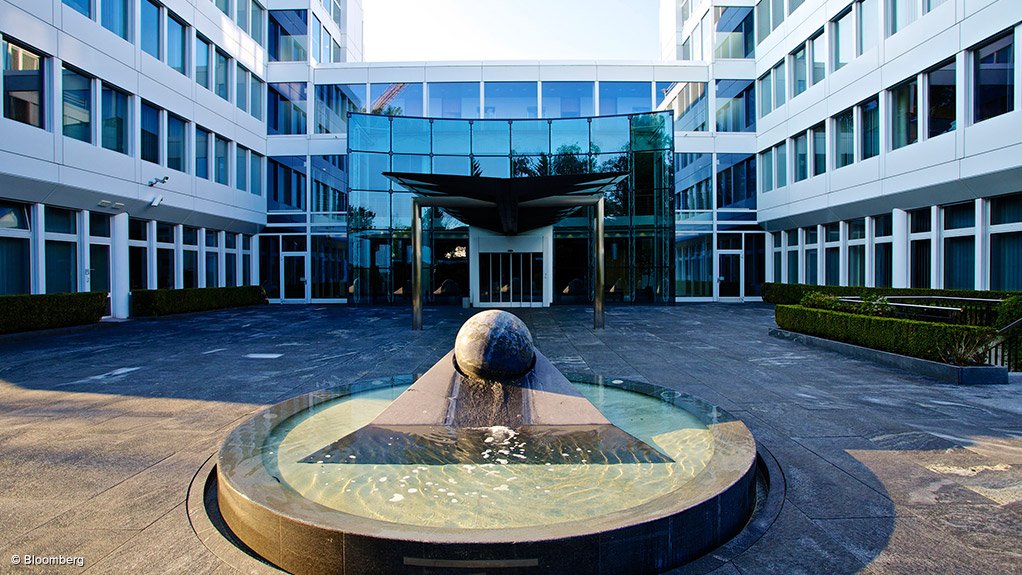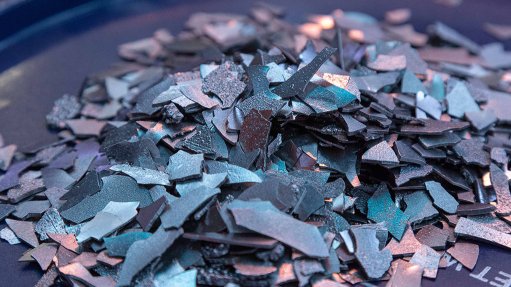Glencore expands adherence to standards, reporting frameworks to ensure sustainability
Global diversified miner Glencore’s emissions and energy use increased in 2023, but the group continues to make strides in managing its operations sustainably and according to ever-evolving standards.
Glencore’s total energy use last year was 202 PJ, compared with 194 PJ in 2022. Renewable energy sources delivered 5.4% of Glencore’s total energy needs in 2023, compared with 7.6% in 2022.
The group says in its ‘2023 Sustainability Report’ released on May 17 that Scope 1, 2 and 3 emissions totalled 433-million tonnes of CO2-equivalent in the reporting year, compared with 397-million tonnes in the prior year.
Of this, 324-million tonnes of emissions (Scope 3, Category 11) are owing to the use of sold products, while Glencore’s own-generated emissions are closer to 33-million tonnes.
The total emissions are nonetheless an improvement on Scope 1, 2 and 3 emissions of 554-million tonnes of CO2-equivalent in 2019, which Glencore attributes to the decline of coal production at its industrial assets, which results in lower customer use of coal.
Glencore remains focused on reducing its Scope 1, 2 and 3 emissions by 15% by the end of 2026, against a 2019 baseline, and further reducing these emissions by 50% by the end of 2035 before reaching net zero by 2050.
The company lowered its water extraction from 1.08-million cubic metres in 2022 to 950-million cubic meters in 2023.
Glencore received 28 water-related fines totalling $2.2-million in 2023, some of which relate to infractions that occurred more than five years ago. In this regard, the company continues to identify and progress improvement opportunities for optimising local water targets.
Notably, no major or catastrophic environmental incidents, or catastrophic tailings storage facility dam failures, occurred in the year under review.
Meanwhile, Glencore has been investing heavily in an ethics and compliance programme, following incidents of securing improper business advantages and bribery of foreign officials on management members’ part, which had Glencore sentenced to pay a hefty fine of R13-billion, or $700-million, to US authorities after a bribery guilty plea. The company was also fined £276-million in the UK for bribes related to its African operations.
In mid-2023, two independent compliance monitors began their work, as managed by resolutions reached with the US Department of Justice.
The board’s investigations committee continues to oversee the response to ongoing investigations by Swiss and Dutch authorities, with the timing of the completion of these investigations remaining uncertain.
Chairperson Kalidas Madhavpeddi says Glencore has proudly developed a comprehensive sustainability approach, including through policies, standards and procedures, which are continuously enhanced and embedded across the business.
He adds that Glencore identifies areas for improvement through monitoring and assurance activities.
CEO Gary Nagle comments in the report that Glencore has incorporated various elements of the Taskforce on Nature-related Financial Disclosures, including the locate, evaluate, assess and prepare risk process, which is been worked into the group’s environmental governance framework for implementation at industrial assets.
Glencore also recently published an updated Climate Action Transition Plan, which outlines work on climate-related topics from 2024 to 2026.
The group currently conforms to the Global Industry Standard on Tailings Management, including its tailings facilities with very high or extreme consequence classifications,
Nagle says the company has taken a rigorous and technically robust approach to applying this standard, which goes beyond self-assessments and includes independent third-party assurance.
Glencore requires all its industrial assets to complete self-assessments at least every three years, against Glencore’s own internal standards – which are mapped to performance expectations of the ICMM.
On the social front, Glencore paid $12-billion to governments in 2023, while having spent about $110-million on social contribution programmes.
Glencore is in the process of reviewing its approach to and management of social contributions, including to incorporate requirements of the ICMM’s Socioeconomic Reporting Framework.
The company will later this year launch a Social Contribution Framework in this regard, in recognition of the community development outcomes that are derived from both discretionary and non-discretionary contributions.
Nagle predicts that companies across the mining industry will begin to respond to more non-financial disclosure requirements that are being introduced in various jurisdictions, to which Glencore is preparing its reporting processes to capture all necessary data to support compliance.
On the safety front, Glencore reported four work-related fatalities at its industrial assets in 2023, while its total recordable injury frequency rate decreased to 2.1, from 2.22 in 2022.
Glencore’s Safework 2.0 assurance programme aims to address each industrial asset’s gaps that may be impacting on safety, including language barriers.
The company in 2023 expanded its Fatal Hazard Protocols and other catastrophic hazards standards, particularly for lifting, cranage and energy isolation activities.
Article Enquiry
Email Article
Save Article
Feedback
To advertise email advertising@creamermedia.co.za or click here
Press Office
Announcements
What's On
Subscribe to improve your user experience...
Option 1 (equivalent of R125 a month):
Receive a weekly copy of Creamer Media's Engineering News & Mining Weekly magazine
(print copy for those in South Africa and e-magazine for those outside of South Africa)
Receive daily email newsletters
Access to full search results
Access archive of magazine back copies
Access to Projects in Progress
Access to ONE Research Report of your choice in PDF format
Option 2 (equivalent of R375 a month):
All benefits from Option 1
PLUS
Access to Creamer Media's Research Channel Africa for ALL Research Reports, in PDF format, on various industrial and mining sectors
including Electricity; Water; Energy Transition; Hydrogen; Roads, Rail and Ports; Coal; Gold; Platinum; Battery Metals; etc.
Already a subscriber?
Forgotten your password?
Receive weekly copy of Creamer Media's Engineering News & Mining Weekly magazine (print copy for those in South Africa and e-magazine for those outside of South Africa)
➕
Recieve daily email newsletters
➕
Access to full search results
➕
Access archive of magazine back copies
➕
Access to Projects in Progress
➕
Access to ONE Research Report of your choice in PDF format
RESEARCH CHANNEL AFRICA
R4500 (equivalent of R375 a month)
SUBSCRIBEAll benefits from Option 1
➕
Access to Creamer Media's Research Channel Africa for ALL Research Reports on various industrial and mining sectors, in PDF format, including on:
Electricity
➕
Water
➕
Energy Transition
➕
Hydrogen
➕
Roads, Rail and Ports
➕
Coal
➕
Gold
➕
Platinum
➕
Battery Metals
➕
etc.
Receive all benefits from Option 1 or Option 2 delivered to numerous people at your company
➕
Multiple User names and Passwords for simultaneous log-ins
➕
Intranet integration access to all in your organisation




















